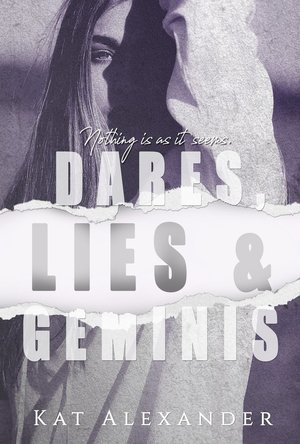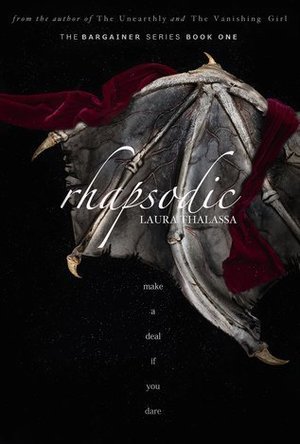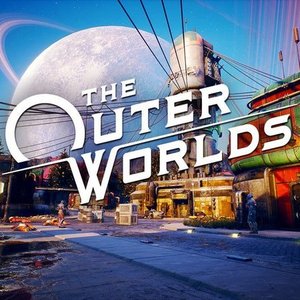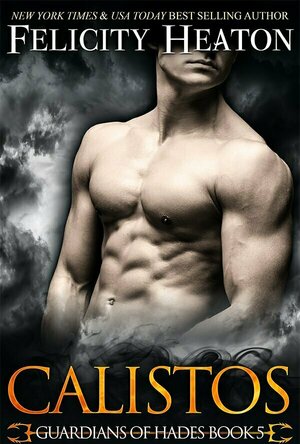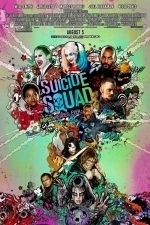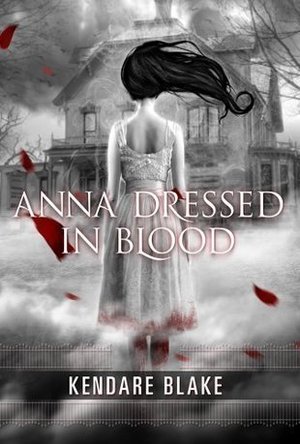Search
Search results

Quizlet Flashcards
Education and Games
App
Quizlet is the easiest way to practice and master what you’re learning. Create your own flashcards...

Photography Week: the weekly digital camera mag
Photo & Video and Magazines & Newspapers
App
***FREE 30-DAY SUBSCRIPTION TRIAL – GET OUR LATEST ISSUE FREE TODAY!*** Photography Week is a new...
Whatchareadin (174 KP) rated Dares, Lies & Gemini's in Books
Jun 1, 2018
This book was incredible
Tristana and Peter live as roommates in a boarding house in Virginia. When they first meet, there is an instant connection between the two. Tristana, though, is too involved in her work and Peter is still working out issues of his own after the death of his brother.
Seraphina is a club girl who likes going out and finding the bad boys. Men that are willing to cheat to have a piece of her. Nathan stand on the sideline and watches her, trying to figure out why she is doing this to herself. But he is always there to step in in case there is a problem.
Will these couples ever get their lives together in order to be much happier as partners instead of singles? Will Tristana be able to break out of her shell around Peter? Will Nathan ever reveal himself to Seraphina and tell her his true feelings?
Thank you to Kat Alexander for the opportunity to read and review this book. She is now on my list of authors whose books I'm going to get without reading the description.
I was hooked on this story from the start. The characters are intriguing and I could totally identify with Seraphina. I was very anxious to find out what was going to happen with these characters. Then about half way through the book BOOM!!! The atomic bomb was dropped on the whole story. Usually when reading book, you know a twist is going to come or you can guess what is going to happen next. I didn't see this coming at all!! From that point on, nothing in life mattered except finding out what was going to happen next.
I can't say much more without giving away spoilers, but if you like a romantic novel with a huge twist, pick up this book today.
Seraphina is a club girl who likes going out and finding the bad boys. Men that are willing to cheat to have a piece of her. Nathan stand on the sideline and watches her, trying to figure out why she is doing this to herself. But he is always there to step in in case there is a problem.
Will these couples ever get their lives together in order to be much happier as partners instead of singles? Will Tristana be able to break out of her shell around Peter? Will Nathan ever reveal himself to Seraphina and tell her his true feelings?
Thank you to Kat Alexander for the opportunity to read and review this book. She is now on my list of authors whose books I'm going to get without reading the description.
I was hooked on this story from the start. The characters are intriguing and I could totally identify with Seraphina. I was very anxious to find out what was going to happen with these characters. Then about half way through the book BOOM!!! The atomic bomb was dropped on the whole story. Usually when reading book, you know a twist is going to come or you can guess what is going to happen next. I didn't see this coming at all!! From that point on, nothing in life mattered except finding out what was going to happen next.
I can't say much more without giving away spoilers, but if you like a romantic novel with a huge twist, pick up this book today.
Lyndsey Gollogly (2893 KP) rated Rhapsodic (The Bargainer #1) in Books
Apr 27, 2020
Callypso Lillis is a siren with a very big problem, one that stretches up her arm and far into her past. For the last seven years she’s been collecting a bracelet of black beads up her wrist, magical IOUs for favors she’s received. Only death or repayment will fulfill the obligations. Only then will the beads disappear.
Everyone knows that if you need a favor, you go to the Bargainer to make it happen. He’s a man who can get you anything you want … at a price. And everyone knows that sooner or later he always collects.
But for one of his clients, he’s never asked for repayment. Not until now. When Callie finds the fae king of the night in her room, a grin on his lips and a twinkle in his eye, she knows things are about to change. At first it’s just a chaste kiss—a single bead’s worth—and a promise for more.
For the Bargainer, it’s more than just a matter of rekindling an old romance. Something is happening in the Otherworld. Fae warriors are going missing one by one. Only the women are returned, each in a glass casket, a child clutched to their breast. And then there are the whispers among the slaves, whispers of an evil that’s been awoken.
If the Bargainer has any hope to save his people, he’ll need the help of the siren he spurned long ago. Only, his foe has a taste for exotic creatures, and Callie just happens to be one.
I loved it! I’ve only read one other book by this author and I that too! It’s so romantic! I absolutely love the story line! Not much more to say as it’s one of those that I recommend just going in and reading! The last book that I loved like this was the Merry Gentry series by Laurell K Hamilton
Everyone knows that if you need a favor, you go to the Bargainer to make it happen. He’s a man who can get you anything you want … at a price. And everyone knows that sooner or later he always collects.
But for one of his clients, he’s never asked for repayment. Not until now. When Callie finds the fae king of the night in her room, a grin on his lips and a twinkle in his eye, she knows things are about to change. At first it’s just a chaste kiss—a single bead’s worth—and a promise for more.
For the Bargainer, it’s more than just a matter of rekindling an old romance. Something is happening in the Otherworld. Fae warriors are going missing one by one. Only the women are returned, each in a glass casket, a child clutched to their breast. And then there are the whispers among the slaves, whispers of an evil that’s been awoken.
If the Bargainer has any hope to save his people, he’ll need the help of the siren he spurned long ago. Only, his foe has a taste for exotic creatures, and Callie just happens to be one.
I loved it! I’ve only read one other book by this author and I that too! It’s so romantic! I absolutely love the story line! Not much more to say as it’s one of those that I recommend just going in and reading! The last book that I loved like this was the Merry Gentry series by Laurell K Hamilton
LeftSideCut (3776 KP) rated the PlayStation 4 version of The Outer Worlds in Video Games
Jul 9, 2020
The Outer Worlds had me excited from the moment it was announced - a space fairing RPG from the makers of Fallout: New Vegas was enough to do that.
Obsidian have successfully created a charming and colourful universe I'm which is stupidly easy to get lost in. It has a cartoon-ish look to it, but the graphics are top level. The environments available to explore are frequently breath taking, and the game boasts some great creature designs to battle as you explore alien habitats.
It plays not too dissimilar to a Fallout title. Being an RPG, there are menus a-plenty to rifle through, but they have an appealing asthethic, and are relatively simple once understood, so they never feel like a chore.
The combat is fairly similar as well, but I would argue that it's smoother than Fallout ever has been.
The plot is engaging and has many different paths to take - I've only had one playthrough so far, but I can't wait to start a second (where I'll be acting like a dick for the most part), and all the characters you meet along the way are memorable. The writing is fantastic - the dialogue is frequently funny, and is a big factor in why this game is so easy to love.
Like many RPGs these days, you can have companions with you. Recruiting a crew to join your adventure is something I absolutely LOVE about the Mass Effect series, so it was nothing but a pleasure to experience something similar here - each potential recruit comes with a set of loyalty missions and everything!
To top the whole thing off, it has an amazing musical score to accompany your journey.
I really don't have anything negative to say about The Outer Worlds. I've heard talk about some DLC in the future which is exciting, but I really hope Obsidian carry it on into a franchise. I'll be there on day one!
Obsidian have successfully created a charming and colourful universe I'm which is stupidly easy to get lost in. It has a cartoon-ish look to it, but the graphics are top level. The environments available to explore are frequently breath taking, and the game boasts some great creature designs to battle as you explore alien habitats.
It plays not too dissimilar to a Fallout title. Being an RPG, there are menus a-plenty to rifle through, but they have an appealing asthethic, and are relatively simple once understood, so they never feel like a chore.
The combat is fairly similar as well, but I would argue that it's smoother than Fallout ever has been.
The plot is engaging and has many different paths to take - I've only had one playthrough so far, but I can't wait to start a second (where I'll be acting like a dick for the most part), and all the characters you meet along the way are memorable. The writing is fantastic - the dialogue is frequently funny, and is a big factor in why this game is so easy to love.
Like many RPGs these days, you can have companions with you. Recruiting a crew to join your adventure is something I absolutely LOVE about the Mass Effect series, so it was nothing but a pleasure to experience something similar here - each potential recruit comes with a set of loyalty missions and everything!
To top the whole thing off, it has an amazing musical score to accompany your journey.
I really don't have anything negative to say about The Outer Worlds. I've heard talk about some DLC in the future which is exciting, but I really hope Obsidian carry it on into a franchise. I'll be there on day one!
Merissa (13749 KP) rated Calistos (Guardians of Hades #5) in Books
Aug 14, 2020
Calistos is the fifth book in the Guardians of Hades series and this time we have the playboy of the series! Bless him, Calistos has some serious issues. Between hiding who he really is from everyone (including his brothers), memory issues, and keeping everyone at a firm distance because he doesn't believe he deserves love, well, this is one helluva story!
Marinda believes she is human and first meets Cal at the ER where she works on reception. Even when he is high on human medicine, Cal recognises something in Mari that makes him want to know her more. As for Marinda, she is fascinated by Cal but thinks he is a junkie so intends to keep her distance. You can guess how that works out.
The connection between Cal and Mari is instantaneous and continues through the book. Mari doesn't like Cal's reputation as a playboy but gets to know him before judging. The action is non-stop in here as Cal tries to understand why the daemons are after Mari. I loved the reason! Let's just say Mari definitely has a split personality.
The other couples play a part in here too, along with a hint of what is to come for Daimon. One of the things I love about these stories is that with each book, it gives me a teaser of what is to come which immediately whets my appetite and makes me want it NOW.
As always, the action scenes are spot-on whilst the sexy scenes steamed up my Kindle. All the characters have more to them than you first see and the layers are peeled off in such a way as to keep you wanting more.
A fantastic addition to the series that I highly recommend.
* A copy of this book was provided to me with no requirements for a review. I voluntarily read this book, and the comments here are my honest opinion. *
Merissa
Archaeolibrarian - I Dig Good Books!
Marinda believes she is human and first meets Cal at the ER where she works on reception. Even when he is high on human medicine, Cal recognises something in Mari that makes him want to know her more. As for Marinda, she is fascinated by Cal but thinks he is a junkie so intends to keep her distance. You can guess how that works out.
The connection between Cal and Mari is instantaneous and continues through the book. Mari doesn't like Cal's reputation as a playboy but gets to know him before judging. The action is non-stop in here as Cal tries to understand why the daemons are after Mari. I loved the reason! Let's just say Mari definitely has a split personality.
The other couples play a part in here too, along with a hint of what is to come for Daimon. One of the things I love about these stories is that with each book, it gives me a teaser of what is to come which immediately whets my appetite and makes me want it NOW.
As always, the action scenes are spot-on whilst the sexy scenes steamed up my Kindle. All the characters have more to them than you first see and the layers are peeled off in such a way as to keep you wanting more.
A fantastic addition to the series that I highly recommend.
* A copy of this book was provided to me with no requirements for a review. I voluntarily read this book, and the comments here are my honest opinion. *
Merissa
Archaeolibrarian - I Dig Good Books!
Haley Mathiot (9 KP) rated Yarn Bombing: The Art of Crochet and Knit Graffiti in Books
Apr 27, 2018
Yarn Bombing—the art of crochet and knit graffiti by Mandy Moore and Leanne Prain
Genre: craft/art
Rating: 4/5
Yarn Bombing is an extremely inspirational and creative book. It got my knitting juices flowing and made my hands itch for the needles when I saw pictures of colorful yarn knit into… beautiful graffiti?
Yes, yarn graffiti. Yarn Bombing is a rather large thing in big cities and even other countries where knitting is prominent, especially Sweden (see links below).
Yarn Bombing has many fantastic pictures, ideas for bombing, some basics for getting started, points and tips, advice on what to say if you get caught in the act (either by passer-bys or police), interviews with yarn bombers, and some patterns.
Here is my favorite pattern:
this pattern is for chain-link fence weave:
1. Cast On 12.
2. Open a bottle of wine.
3. Knit every row until sober.
4. Bind off
5. Repeat 1-4 seven more times…
I find this hilarious, though some people who aren’t knitters may not. By the way, the real pattern for the chain link fence weave is written in the book right under that ;)
There are patterns in the book for knitting items for yourself, such as arm warmers, hoods that cover your whole face except your eyes (so you can be a ninja-yarn-bomber!) sweaters, and some other stuff. Some of the bombing patterns include treesweaters, knit tulips and mushrooms, Knit sneakers to hang over wires, Bolo balls, Elf Stockings, and more.
I give it a 4/5 because, considering that graffiti is illegal and I’m perusing Criminology… let’s just say that I’m being gracious.(and I’m actually considering giving this a try… I’ll keep you posted on that one ;). Also, it was laid out a little odd and it was a bit hard to find some things. Lastly it didn’t have quite as many patterns as I expected. But, all in all, it was an awesome craft book!
Recommendation: knitters and Crocheters of any age, anyone interested in graffiti or contemporary art.
Here are some links to some yarn-bombers that you should check out, there are tons more! Follow the links you find on their blogs and explore the yarn-bombing community.
Genre: craft/art
Rating: 4/5
Yarn Bombing is an extremely inspirational and creative book. It got my knitting juices flowing and made my hands itch for the needles when I saw pictures of colorful yarn knit into… beautiful graffiti?
Yes, yarn graffiti. Yarn Bombing is a rather large thing in big cities and even other countries where knitting is prominent, especially Sweden (see links below).
Yarn Bombing has many fantastic pictures, ideas for bombing, some basics for getting started, points and tips, advice on what to say if you get caught in the act (either by passer-bys or police), interviews with yarn bombers, and some patterns.
Here is my favorite pattern:
this pattern is for chain-link fence weave:
1. Cast On 12.
2. Open a bottle of wine.
3. Knit every row until sober.
4. Bind off
5. Repeat 1-4 seven more times…
I find this hilarious, though some people who aren’t knitters may not. By the way, the real pattern for the chain link fence weave is written in the book right under that ;)
There are patterns in the book for knitting items for yourself, such as arm warmers, hoods that cover your whole face except your eyes (so you can be a ninja-yarn-bomber!) sweaters, and some other stuff. Some of the bombing patterns include treesweaters, knit tulips and mushrooms, Knit sneakers to hang over wires, Bolo balls, Elf Stockings, and more.
I give it a 4/5 because, considering that graffiti is illegal and I’m perusing Criminology… let’s just say that I’m being gracious.(and I’m actually considering giving this a try… I’ll keep you posted on that one ;). Also, it was laid out a little odd and it was a bit hard to find some things. Lastly it didn’t have quite as many patterns as I expected. But, all in all, it was an awesome craft book!
Recommendation: knitters and Crocheters of any age, anyone interested in graffiti or contemporary art.
Here are some links to some yarn-bombers that you should check out, there are tons more! Follow the links you find on their blogs and explore the yarn-bombing community.
Mark Jaye (65 KP) rated Suicide Squad (2016) in Movies
May 14, 2019
Contains spoilers, click to show
I'll say from the outset, I'm a lifelong comic book fan. During my teenage years back in the 80's I collected John Ostrander's Suicide Squad title and absolutely loved it. It was always a given for me therefore that I would jump at the prospect of a movie based on my favourite title.
You know the synopsis I'm guessing (if you're reading this review) - government official Amanda Waller assembles a group of the baddest incarcerated criminals to go up against the potential of a metahuman crisis should the 'next' Superman not share our values. This is deemed more relevant following the demise of the man of steel himself at the climax of Dawn Of Justice. Amongst those villains are Deadshot (Will Smith), Harley Quinn (Margot Robbie), Captain Boomerang (Jai Courtney), El Diablo (Jay Hernandez), and Enchantress/Dr June Moone (Carla Delevigne). Heading up the group is Colonel Rick Flagg (Joel Kinnaman), albeit reluctantly.
The story essentially revolves around Enchantress going rogue and converting a subway station in Midway City into a warzone as she resurrects her brother Incubus and the two attempt to destroy the world. The only criticism I have with the movie concerns the simplicity within which Enchantress 'turns' on the group shortly after it is her actions that cause the senate committee to approve the founding of Task Force X only a couple of scenes earlier in the movie. It just feels a bit rushed. It's also interesting to note that the events of the movie would never have taken place had Waller not established her little 'pet project' to begin with!
The dialogue is witty and sharp and the characters are highly likeable (despite them being arch-villains and - in some cases, murderers). Will Smith is the core of the group as Deadshot and his cold-bloodedness as an assassin is softened by the connection he has to his daughter (how the audience is expected no doubt to warm to him?). Joel Kinnaman's Rick Flagg is also key to the story's heart with his flawed relationship with Dr June Moone - Enchantress's alter ego. Margot Robbie is superb as Harley Quinn although at times it seems as if her rear's the star of the show.
What do I need to say about Jared Leto that hasn't been said before? You'll either love or hate his portrayal of Mr.J!
You know the synopsis I'm guessing (if you're reading this review) - government official Amanda Waller assembles a group of the baddest incarcerated criminals to go up against the potential of a metahuman crisis should the 'next' Superman not share our values. This is deemed more relevant following the demise of the man of steel himself at the climax of Dawn Of Justice. Amongst those villains are Deadshot (Will Smith), Harley Quinn (Margot Robbie), Captain Boomerang (Jai Courtney), El Diablo (Jay Hernandez), and Enchantress/Dr June Moone (Carla Delevigne). Heading up the group is Colonel Rick Flagg (Joel Kinnaman), albeit reluctantly.
The story essentially revolves around Enchantress going rogue and converting a subway station in Midway City into a warzone as she resurrects her brother Incubus and the two attempt to destroy the world. The only criticism I have with the movie concerns the simplicity within which Enchantress 'turns' on the group shortly after it is her actions that cause the senate committee to approve the founding of Task Force X only a couple of scenes earlier in the movie. It just feels a bit rushed. It's also interesting to note that the events of the movie would never have taken place had Waller not established her little 'pet project' to begin with!
The dialogue is witty and sharp and the characters are highly likeable (despite them being arch-villains and - in some cases, murderers). Will Smith is the core of the group as Deadshot and his cold-bloodedness as an assassin is softened by the connection he has to his daughter (how the audience is expected no doubt to warm to him?). Joel Kinnaman's Rick Flagg is also key to the story's heart with his flawed relationship with Dr June Moone - Enchantress's alter ego. Margot Robbie is superb as Harley Quinn although at times it seems as if her rear's the star of the show.
What do I need to say about Jared Leto that hasn't been said before? You'll either love or hate his portrayal of Mr.J!
Goddess in the Stacks (553 KP) rated Anna Dressed in Blood (Anna, #1) in Books
Oct 28, 2019
Another spooky story for October! On first glance, this one is very similar to Rin Chupeco's The Girl From The Well, but the plot is actually quite different. It's still human boy, murderous ghost girl, but here the girl is bound to her house and forced to murder whoever comes inside. Unraveling the WHY is a major part of the plot.
I'd say this one is actually less creepy than The Girl From The Well, though one of the evil things Cas encounters is VERY creepy. Both of these were just about the right amount of spooky for me. I'm actually REALLY disappointed that the sequel is proving very difficult to get my hands on! I had to request it through Marina, my statewide lending program, so I'm not sure when it will arrive. But I NEEEEEEED to know what happens to Cas and Anna after this book ends!
I think I liked the relationship between boy and ghost better in Girl From The Well; you could clearly see the draw for the ghost, and the connection between them. Not so much here; Cas is trying to kill Anna, but then they become fascinated with each other for...some reason? Anna isn't compelled to kill Cas, and that's never explained, and seems to be her main source of fascination with the boy.
Another major difference is that while Tark in Girl From The Well is rather isolationist and creeps out his peers, Cas seems to attract his peers, and quickly finds friends wherever he goes. He's typically used them as contacts in the past, not really valuing them as friends, but that changes with the events of this book, as he actually comes to know a couple of the kids at his new school and value their friendship. He even puts up with their jokes about being Ghostbusters and who would be which character, which is kind of hilarious.
Both stories are great; I'd say this one is slightly more light-hearted than Girl From The Well, but only slightly. There's still lots of creepy ghosts, life-or-death situations, gory deaths of side characters, and curses. It's another great spooky October book for scaredy-cats like me!
You can find all my reviews and more at http://goddessinthestacks.com
I'd say this one is actually less creepy than The Girl From The Well, though one of the evil things Cas encounters is VERY creepy. Both of these were just about the right amount of spooky for me. I'm actually REALLY disappointed that the sequel is proving very difficult to get my hands on! I had to request it through Marina, my statewide lending program, so I'm not sure when it will arrive. But I NEEEEEEED to know what happens to Cas and Anna after this book ends!
I think I liked the relationship between boy and ghost better in Girl From The Well; you could clearly see the draw for the ghost, and the connection between them. Not so much here; Cas is trying to kill Anna, but then they become fascinated with each other for...some reason? Anna isn't compelled to kill Cas, and that's never explained, and seems to be her main source of fascination with the boy.
Another major difference is that while Tark in Girl From The Well is rather isolationist and creeps out his peers, Cas seems to attract his peers, and quickly finds friends wherever he goes. He's typically used them as contacts in the past, not really valuing them as friends, but that changes with the events of this book, as he actually comes to know a couple of the kids at his new school and value their friendship. He even puts up with their jokes about being Ghostbusters and who would be which character, which is kind of hilarious.
Both stories are great; I'd say this one is slightly more light-hearted than Girl From The Well, but only slightly. There's still lots of creepy ghosts, life-or-death situations, gory deaths of side characters, and curses. It's another great spooky October book for scaredy-cats like me!
You can find all my reviews and more at http://goddessinthestacks.com

